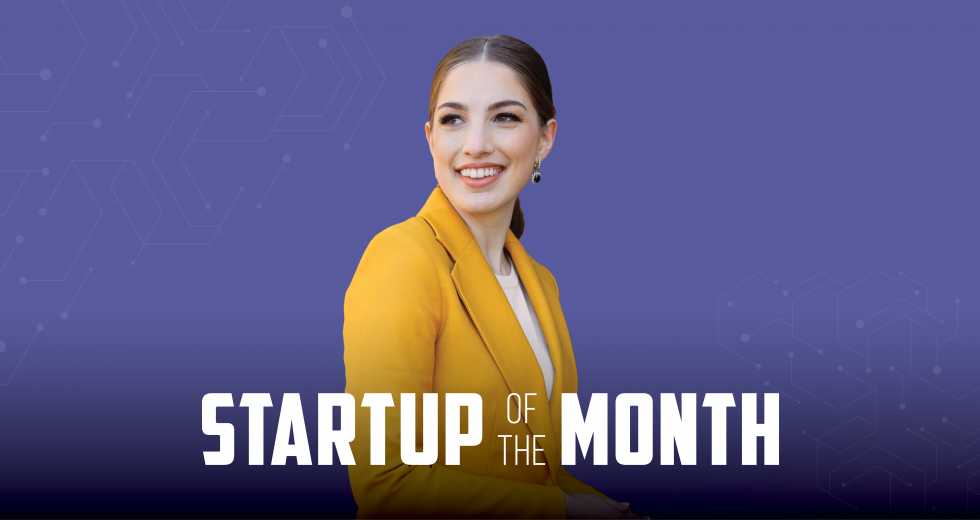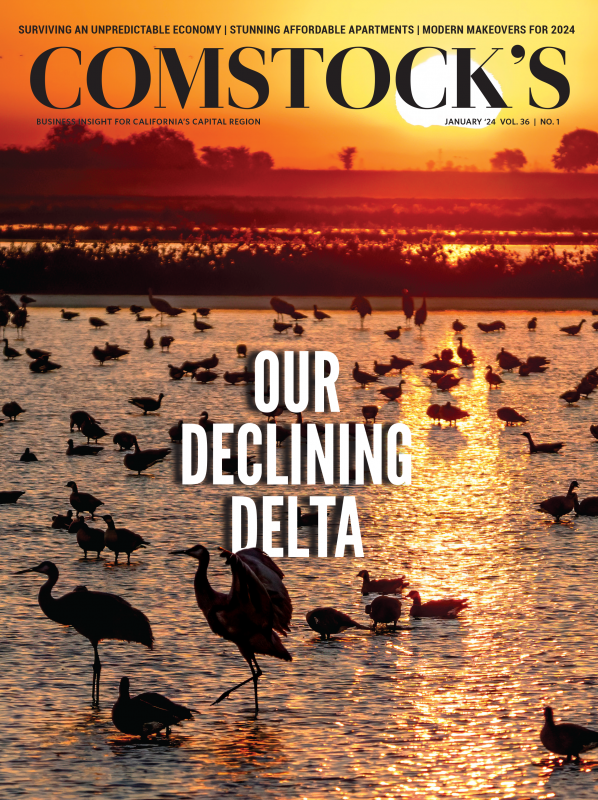With over 3 billion years of evolution under its belt, the natural world has a pretty long track record of creativity. Knowing this, three interdisciplinary researchers at UC Davis looked to the golden silk orb-weaver spider to develop an innovative biomaterial.
According to Haley Noelle Bergman, CEO and co-founder of 3D Organic Polymer Silk, simply applying biology to existing technology was too rigid. Rather than just copying nature’s tricks, they wanted to unravel her secrets. “Instead, we asked, ‘How can we mirror biology?’”
In 2019, as a second-year cell biology undergraduate, Bergman posed this question to Avery Williamson and Preston Vanderpan, her two mechanical engineering friends. The soon-to-be co-founders took notes, drew sketches and eventually came up with a design that simulates the golden orb-weaver’s silk-spinning process. Using principles of biomimicry, they developed technology that turns a spidroin protein solution into fibroin strands to 3D print with spider silk.
“As humans, we’re really not that smart,” Williamson says. “There’s so much inspiration we can draw from ecosystems and nature and millions of years of evolution. It would be too prideful to think we could do it better.”
The team looked at the golden silk orb-weaver and broke it down into individual components to create its prototype bioprinter, the Ariadne 1.0. The idea was to chemically and mechanically simulate the silk-spinning process that occurs in the abdomen of the organism. This approach would be vital to get a viable product “rather than leaving out key components in the name of simplifying,” Bergman says.
As a result, the Ariadne 1.0 produces a non-toxic, sustainable and customizable silk-spinning solution to suit various potential surgical applications. In the U.S., studies show that about half of the 33 million musculoskeletal injuries reported every year involve tendons and ligaments. Current treatments use artificial tissues to repair bones and muscles, but these man-made patches don’t always fuse well with the natural systems in our bodies.
This is what makes spider silk so promising. The solution offers valuable advantages as a biomaterial, from its biodegradable and anti-microbial properties to its ability to help cells grow and multiply. As highlighted by the startup, silk is five times stronger than steel by weight, seven times more elastic than Spandex and 20 times more adhesive than super glue. The 3D OPS team aims to use this technology to revolutionize orthopedic medicine, specifically musculoskeletal injury and joint capsular repair.
After launching in 2020, 3D OPS filed its first patent in 2021. The startup is developing its first product: a spider silk super glue, which would serve as a non-toxic way for surgeons to repair nerves and bones.
Making a glue is easier than a 3D structure, they say, plus after speaking with surgeons, the team realized that glues currently used in the medical field weren’t adequate. External glues are too toxic to be used in the body while internal glues are basically “the equivalent of spitting on something and hoping it sticks,” Bergman says. 3D Ops hopes its “spider glue” can be used both internally as a tissue adhesive, a hemostatic agent, and externally as a skin sealant.
“They were working with amazing technology that has demonstrated clear advantages over what already existed,” says Dawn McGee, administrator and lecturer at the UC Davis Student Startup Center.
McGee supported 3D Ops when the team participated in PLASMA, a 12-week, early-stage startup accelerator for UC Davis undergraduate students. It has been astounding to watch the company evolve, McGee says, as the co-founders have graduated, won awards and pitched their concept to some of the brightest minds in health and science.
“They’re so humble,” McGee says. “A lot of young people, you put them in these environments and their heads get big and they think it’s something special about them.”
The team is pursuing government grants or other non-equity funding at this time, Bergman says. This is typical for medtech companies. That’s because it takes a long time (over 10 years) and a lot of money (millions of dollars) to develop and get these products to market. Support from the government and other organizations help to make it happen. As the trio of curious graduate students is currently working towards their doctorates, they want to give the company and themselves time to grow. And like the spider glue they’ve developed, their success is based on the strength of their bond.
“Friends allow us to be honest with one another, more forgiving, flexible,” Bergman says. “The people I work with are my favorite people.”
–
Stay up to date on business in the Capital Region: Subscribe to the Comstock’s newsletter today.
Recommended For You
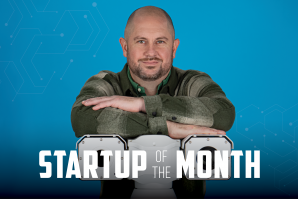
Startup of the Month: OnSight Technology
Company deploys robots to detect issues on solar farms
After years in the solar farm industry, Derek Chase was looking into different drone companies to handle aerial flyovers. But he found these companies couldn’t provide the information he needed, which was found on the ground, under the panels, where the wires are.
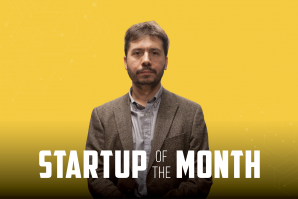
Startup of the Month: Botanical Solution Inc.
Lab-grown plants offer key compounds for crop protection, vaccines
Grown in a lab from raw materials, so-called “baby trees” could be essential for protecting not only the future of fruits and vegetables, but also people. This is the aim of Botanical Solution Inc., a Davis-based ag tech startup with global roots.
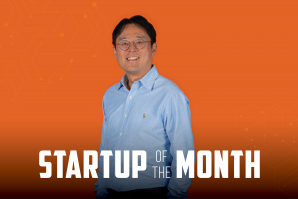
Startup of the Month: RePurpose Energy
Fairfield startup puts sustainable spin on retired EV batteries
For an old electric vehicle battery, retirement doesn’t mean the end of the road. This fact was the catalyst for RePurpose Energy, a Fairfield-based startup that converts retired EV batteries into renewable energy storage systems.
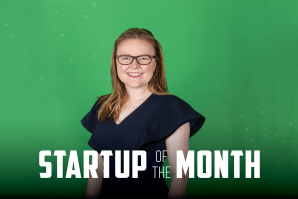
Startup of the Month: Scopi
A portable endoscope helps clinicians diagnose nasal problems
Nasal and sinus problems can be tricky and costly to diagnose. Based on a hardware prototype developed at Stanford University, Scopi Medical aims to solve both problems with the first AI-enabled portable nasal endoscope for diagnosis at the point of care.
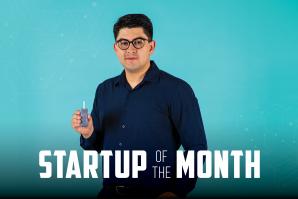
Startup of the Month: Biosense
Innovative test strips measure glucose and other substances from saliva
Founded in 2020, Biosense is based on technology with development
led by Luis Bojorquez, founder and CSO. Bojorquez specializes in
combining tiny natural substances (e.g. proteins) with inorganic
materials to develop novel biosensing technologies.

Startup of the Month: Advance Ag
Agtech company aims to bring real-time data tools to farmers
Using Internet-of-Things devices and sensors, the Sacramento-based startup analyzes real-time plant data to monitor the health and performance of crops and water soil saturation.



